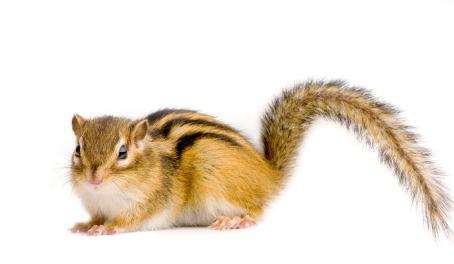Chipmunks
Chipmunks are highly active animals that need spacious and stimulating housing. Although naturally ground-dwelling, they are excellent climbers and in the wild spend considerable amounts of time foraging in shrubs and small trees. Males tend to have a shorter lifespan than females which may live on average for 5 years but can live up to eight years or longer. Given patience, chipmunks can become hand tame, but can resent handling.
Chipmunks can be kept on their own, but are social animals and enjoy each other’s company. However, males will usually fight.
The lifespan is between 2 – 5 years on average for males and 6 years plus for females.
CHOOSING AND BUYING YOUR CHIPMUNK
Chipmunks are seasonal breeders and babies are normally available in late spring and autumn. Babies will be about 10 weeks old before they are offered for sale. Breeders will often socialise baby chipmunks by handling them while they are young. You will be able to assess how friendly chipmunks at the pet shop before you decide to buy.
- A healthy chipmunk should be:
- Bright and alert.
- Have no signs of discharge from eye, ears, mouth and nose.
- Have a clean anal area.
- Have a glossy coat with no bald patches and not have sores on the skin.
- Should move around the cage easily.
HOUSING
A large cage is essential. There are several types designed for chipmunks but aviaries (either indoor or outdoor) are preferable. Whatever is chosen it must be completely escape proof with a mesh size no bigger than about 25 x 25 mm. Aviaries should have a double door and solid base or one lined with metal mesh. Any wooden framing should be similarly protected.
If kept indoors, the cage should be placed in a quiet room away from televisions and other similar electrical equipment. These emit sounds that are not audible to the human ear which cause the animals stress. The cage should be placed out of draughts.
A chipmunk enclosure must be furnished with an interesting selection of natural non-toxic wood branches, shelves, pipes and perches.
Chipmunks become bored easily so it is worthwhile changing or moving cage contents on a regular basis.
One or more nest boxes should be provided with an entrance hole of 50 to 65 mm diameter. Those sold for birds like cockatiels are ideal.Chipmunks will hoard food so boxes should be checked regularly and stale or uneaten fresh food removed. A soft paper bedding or hay should be provided. Outdoor aviaries should have a dry protected area.
Smaller cages will need to be cleaned and disinfected on a regular weekly basis as will any perches, branches or other decorations.
FEEDING AND WATER
There are several diets available that are formulated for chipmunks. This is normally a mixture of cereals, nuts, dried fruit etc. Dry cat or dog food can also be fed in moderation.
Fresh foods are essential to provide a healthy and varied diet. Hard fruit and vegetables like apples, broccoli, carrots and cauliflower are suitable.
Clean water should be available at all times provided in a drinking bottle. Dishes and water bottles should be cleaned daily and uneaten foods replaced.
Vitamin drops that are added to the water are useful and mineral stones or wooden chew toys will help keep your chipmunk’s teeth trim.
HANDLING
Not all chipmunks respond well to handling and may bite.
With patience chipmunks may become hand tame once they overcome any shyness and fear.General care
By far the most important aspect of chipmunk care is to avoid boredom. This can be achieved using a combination of several methods. Rearranging cage contents regularly is useful as is providing toys. Wooden ones are ideal as are the plastic ones used in conjunction with food or treats. These are normally sold for parrots.
Since chipmunks spend much of their time in the wild foraging, fresh food and treats should be placed or hidden in different parts of the enclosure so that the animals have to search for it. A box containing peat or shavings allows digging and may be useful.
Without adequate stimulation chipmunks can suffer from abnormal behaviour patterns. You should look out for repetitive behaviour like running backwards and forwards along the same route often for long periods of time.
Given a good routine and varied diet chipmunks normally lead healthy problem-free lives. As with all rodents their front teeth grow continuously and need to be kept worn down by chewing. If your chipmunk’s teeth get too long or you notice any other signs of ill health you should consult your vet.

Shopping List
- Cage
- Aviary
- Water bottle and brushChew toys
- FoodCeramic or metal food bowls
- Vitamin drops Mineral stone
- Perches, tubes and otherChipmunk care book
